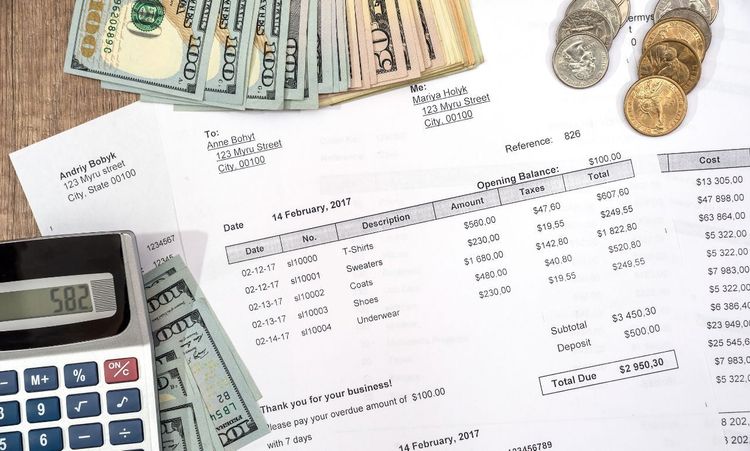Navigating the financial landscape of a business can be tricky. One question that often crops up is, "How many business bank accounts should I have?" Let's dive into this topic and explore the benefits, strategies, and practical tips for managing multiple business bank accounts.
Why You Need Multiple Business Bank Accounts
Operational Segmentation
Imagine trying to juggle your grocery, rent, and vacation funds all in one wallet. Messy, right? The same goes for your business finances. Having multiple bank accounts allows you to segment your operations, making it easier to manage different financial activities.
For example, you can have one account specifically for incoming payments, another for outgoing payments like bills and payroll, and yet another for storing emergency funds or future investments. This segmentation not only helps in better tracking and managing your finances but also ensures that your business remains organized and efficient.
Cash Optimization

Different accounts can provide various levels of control and interest. In today's high inflation environment, optimizing cash flow is crucial. For instance, you can use high-yield savings accounts to maximize interest on your reserves, while checking accounts ensure easy access for daily operations.
By strategically placing your funds in appropriate accounts, you can make sure that your money is working as efficiently as possible for your business. This approach not only helps in maintaining liquidity but also in earning a better return on your idle funds.
Security
Security is paramount when it comes to managing business finances. Having multiple accounts can safeguard your funds from fraud. If one account is compromised, the others remain untouched, thereby minimizing potential losses. Moreover, different accounts can have different levels of security features, which can further protect your funds.
For instance, keeping a separate account for large transactions can help in monitoring suspicious activities more effectively. This way, you can ensure that your business finances are secure and well-protected against potential threats.
Levy Protection
Government agencies can freeze your accounts if taxes are owed. Having multiple accounts can buy you time to sort out these issues without crippling your operations. For example, if your main operating account is frozen due to a tax levy, having a separate account for payroll can ensure that your employees are still paid on time. This can prevent a financial crisis and allow you to continue your business operations smoothly while resolving the tax issues. Therefore, having multiple accounts can act as a safeguard against such unforeseen circumstances.
The Three Key Bank Accounts
Income Checking Account
This is your primary account where all business income is deposited. It's the lifeblood of your business finances. Having a dedicated income account helps in keeping track of all the money coming into your business. This account should be closely monitored to ensure that all incoming payments are accurately recorded.
By separating income from other transactions, you can have a clear picture of your revenue stream, which is essential for making informed financial decisions. Moreover, this segregation helps in simplifying the reconciliation process and ensures that your financial records are accurate.
Expense Checking Account
All payments, from bills to payroll, come from this account. Keeping it separate from your income account helps track expenditures more efficiently. By having a dedicated expense account, you can easily monitor your outgoing payments and ensure that you are not overspending. This account can also help in identifying any unnecessary expenses that can be cut down to improve your business's profitability.
Additionally, having a separate expense account can simplify the budgeting process and make it easier to manage your cash flow. This way, you can ensure that your business is operating within its means and avoid any financial strain.
Reserve Savings Account
Store excess funds here. This account should be off-limits for regular transactions to protect your reserves. Having a reserve savings account can provide a financial cushion in case of emergencies or unexpected expenses. This account can also be used to save for future investments or expansion plans. By keeping your reserves separate from your operating funds, you can ensure that you have enough liquidity to cover any unforeseen expenses.
Moreover, having a reserve account can help in earning a better return on your idle funds through interest. This way, you can ensure that your business is financially prepared for any eventuality.
Expanding Beyond Three Accounts
Payroll Checking Account
As your business grows, it might be beneficial to have a separate payroll account. This ensures that funds are available for employee payments, preventing any delays. By having a dedicated payroll account, you can streamline your payroll process and ensure that your employees are paid on time. This account can also help in tracking payroll expenses and ensuring compliance with tax regulations.
Additionally, having a separate payroll account can provide a layer of protection in case of any financial disputes or audits. This way, you can ensure that your payroll operations are smooth and efficient.
Tax Reserve Savings Account
Setting aside funds for taxes in a separate account can help you avoid last-minute scrambles to gather the necessary amounts. By having a tax reserve account, you can ensure that you are always prepared for tax payments. This account can be used to set aside a portion of your income for taxes, ensuring that you have enough funds to cover your tax liabilities.
Moreover, having a separate tax account can help in simplifying the tax filing process and ensuring compliance with tax regulations. This way, you can avoid any penalties or interest charges for late tax payments.
Profit Account
Allocating a percentage of your income to a profit account allows you to reinvest in your business or distribute dividends. By having a dedicated profit account, you can ensure that a portion of your income is set aside for future growth. This account can be used to reinvest in your business, such as purchasing new equipment or expanding your operations.
Having a profit account can help in distributing dividends to shareholders, which can improve investor confidence and attract new investments. This way, you can ensure that your business is financially sustainable and prepared for future growth.
Should You Have Accounts in Multiple Banks?
FDIC Insurance
Maximizing FDIC insurance by spreading funds across multiple banks can protect your deposits. Each bank account is insured up to $250,000, and by having accounts in different banks, you can ensure that all your funds are covered. This approach can provide an additional layer of security for your business finances. In case one bank fails, your funds in other banks remain protected. This way, you can minimize the risk of losing your deposits and ensure that your business remains financially stable.
Business Continuity
Banks can fail. Having accounts in multiple banks ensures your business remains operational even if one bank faces issues. By diversifying your banking relationships, you can ensure that your business operations are not disrupted in case of a bank failure. This approach can also provide access to different banking services and products, which can benefit your business.
Having accounts in multiple banks can provide better bargaining power and help you negotiate better terms and rates. This way, you can ensure that your business remains resilient and adaptable to any financial challenges.
Interest Maximization
Different banks offer varying interest rates. Shop around to get the best deals for your savings accounts. By comparing different banks, you can find the ones that offer the highest interest rates for your reserves. This approach can help you earn a better return on your idle funds and improve your business's profitability.
Additionally, having accounts in multiple banks can provide access to different investment options and financial products, which can further enhance your returns. This way, you can ensure that your business finances are optimized and working efficiently for you.
Managing Cash Across Accounts
Weekly Sweeps

Move funds from your income account to your reserve and expense accounts weekly. This routine helps maintain a clear financial picture. By regularly transferring funds, you can ensure that your accounts are always balanced and up-to-date. This approach can also help in identifying any discrepancies or errors early on, allowing you to take corrective actions promptly.
Weekly sweeps can help in maintaining liquidity and ensuring that your business has enough funds to cover its expenses. This way, you can ensure that your business operations run smoothly and efficiently.
Buffer Strategy
Maintain a buffer in your expense account to cover unexpected costs. By keeping a buffer, you can ensure that your business is prepared for any unforeseen expenses. This approach can provide a financial cushion and prevent any disruptions in your business operations. Additionally, having a buffer can help in managing cash flow and ensuring that you have enough funds to cover your expenses. This way, you can avoid any financial strain and ensure that your business remains financially stable.
Profit First Methodology
Mike Michalowicz's Profit First approach recommends multiple accounts for specific purposes, such as profit, owner's compensation, tax, and operating expenses. This method helps prioritize profit and ensure you’re always prepared for taxes and expenses. By following the Profit First methodology, you can allocate a percentage of your income to different accounts, ensuring that your business remains financially healthy.
This approach can help in improving cash flow management and ensuring that you have enough funds to cover your expenses. Additionally, the Profit First methodology can help in identifying areas where you can cut costs and improve profitability. This way, you can ensure that your business remains financially sustainable and prepared for future growth.
Multiple Bank Accounts for eCommerce Businesses
Sales Tax Account
Set aside collected sales tax in a dedicated account until it’s time to remit to the government. By having a separate sales tax account, you can ensure that you are always prepared for tax payments. This account can help in tracking sales tax collections and ensuring compliance with tax regulations. Additionally, having a dedicated sales tax account can simplify the tax filing process and prevent any discrepancies. This way, you can ensure that your eCommerce business remains compliant and avoids any penalties or interest charges for late tax payments.
Channel-Specific Accounts
For larger eCommerce operations, consider separate accounts for different sales channels (e.g., Amazon, Shopify). By having channel-specific accounts, you can track revenue and expenses for each sales channel separately. This approach can help in identifying the performance of different sales channels and making informed business decisions. Additionally, having separate accounts can simplify the reconciliation process and ensure accurate financial records. This way, you can ensure that your eCommerce business remains organized and efficient.
Practical Tips for Managing Multiple Accounts
Use Accounting Software
Tools like QuickBooks or Xero can automate the management of multiple accounts, ensuring accurate record-keeping. By using accounting software, you can streamline your financial processes and ensure that your accounts are always up-to-date. This approach can help in reducing errors and improving the accuracy of your financial records. Accounting software can provide valuable insights into your business finances, helping you make informed decisions. This way, you can ensure that your business remains financially healthy and prepared for future growth.
Regular Reconciliation
Reconcile your accounts monthly to catch any discrepancies early. By regularly reconciling your accounts, you can ensure that your financial records are accurate and up-to-date. This approach can help in identifying any errors or discrepancies early on, allowing you to take corrective actions promptly. Additionally, regular reconciliation can help in maintaining the integrity of your financial records and ensuring compliance with tax regulations. This way, you can ensure that your business remains financially stable and prepared for any audits or financial reviews.
Secure Access
Limit account access to trusted individuals and use multi-factor authentication for added security. By restricting access to your accounts, you can ensure that your business finances are secure and protected against fraud. This approach can help in preventing unauthorized transactions and ensuring that your accounts are accessed only by trusted individuals. Additionally, using multi-factor authentication can provide an additional layer of security and protect your accounts from potential threats. This way, you can ensure that your business finances remain secure and well-protected.
Comparison Table: Benefits of Multiple Bank Accounts
Benefit
Description
Operational Segmentation
Separate accounts for income, expenses, and savings improve financial clarity.
Cash Optimization
Different accounts can offer varying interest rates, helping maximize returns.
Security
Multiple accounts reduce the risk of total financial loss in case of fraud.
Levy Protection
Having multiple accounts can prevent total freezes by government agencies.
FDIC Insurance
Spreading funds across banks maximizes insurance coverage.
Business Continuity
Ensures operations continue smoothly even if one bank faces issues.
Interest Maximization
Allows for strategic placement of funds in accounts with the highest interest rates.
Conclusion
Managing multiple business bank accounts might seem daunting, but the benefits far outweigh the challenges. By segmenting your finances, optimizing cash flow, and enhancing security, you set your business up for success. Whether you’re a small startup or a growing enterprise, the right mix of accounts can make all the difference.




